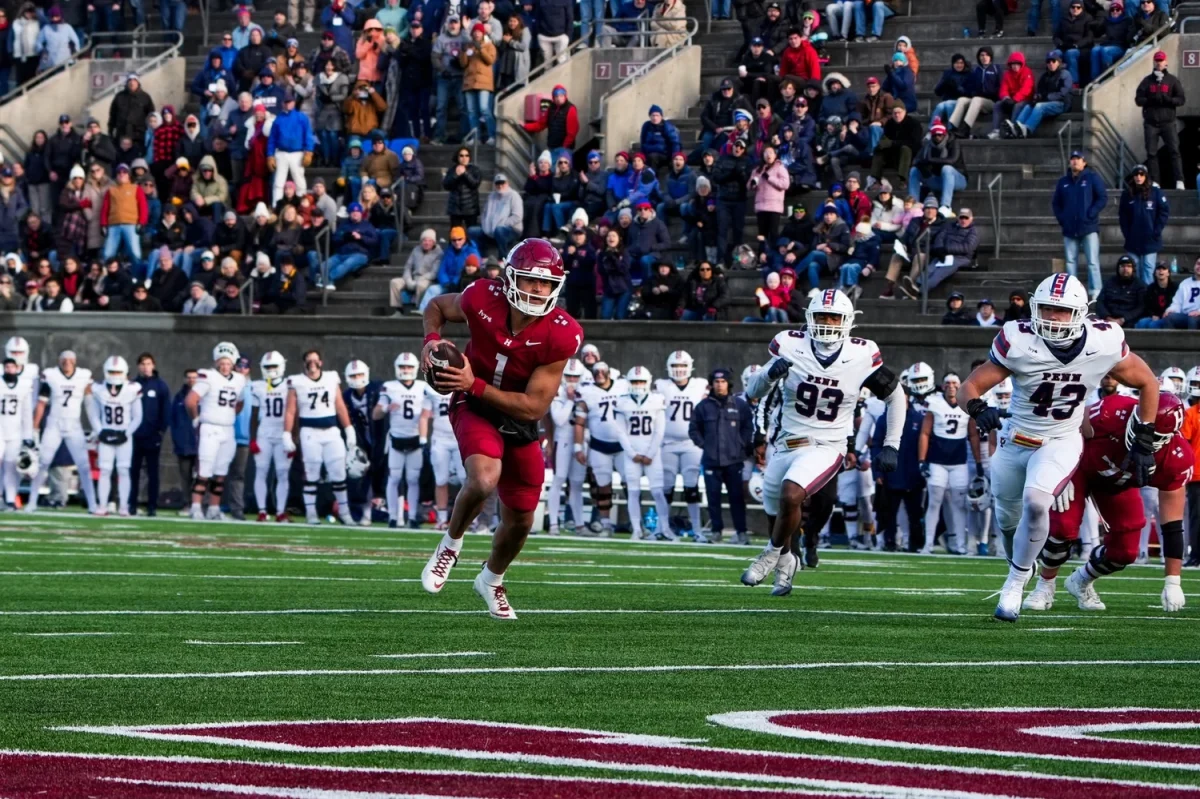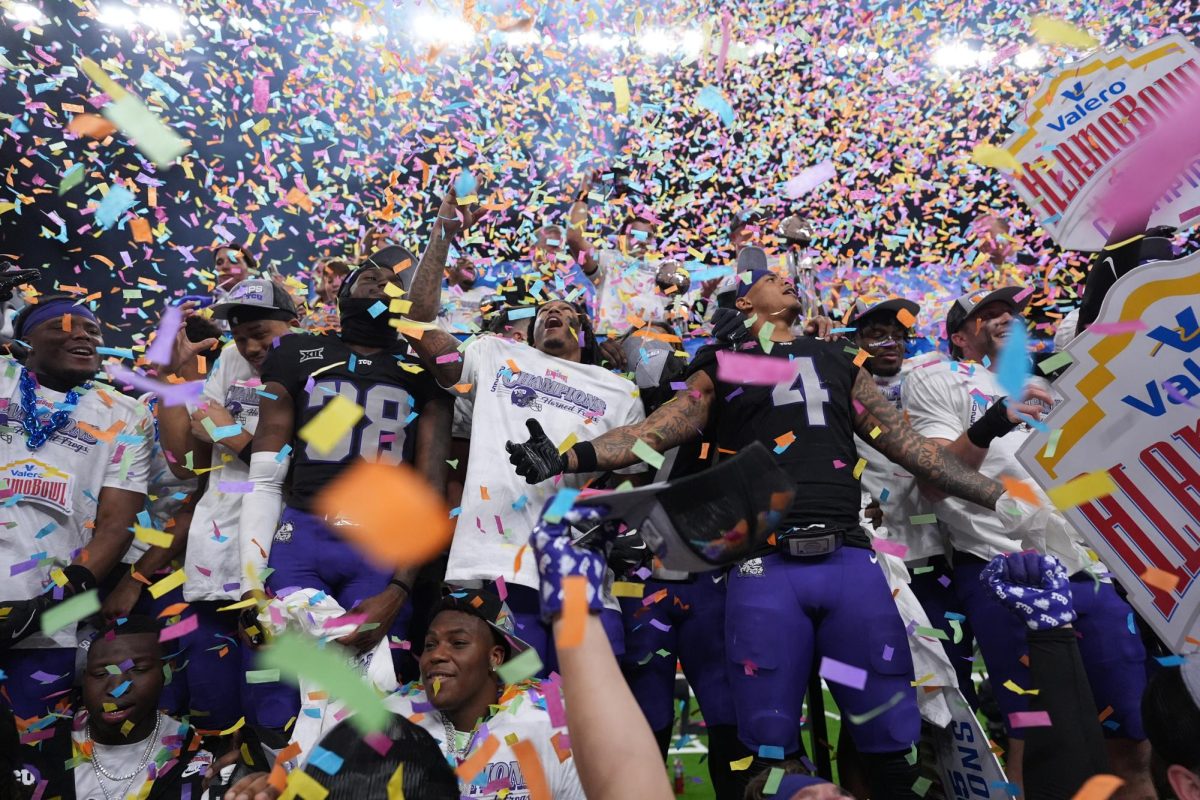For TCU, a game against a Football Championship Subdivision team is business as usual, as the university ensures an extra home game with maximum stadium revenue, TCU athletic director Chris Del Conte said.
For a FCS program, formerly known as Division I-AA, a game with a Bowl Championship Subdivision school such as TCU can let a team gauge itself against premium talent in a great atmosphere, according to Southeastern Louisiana’s head football coach.
And, said Ron Roberts, the head coach, the income can also help an athletic department operate in the financial black.
TCU’s games against FCS opponents Southeastern Louisiana and Grambling State came at a cost of $900,000, according to documents acquired through public records requests.
The TCU athletic department spent $400,000 to play Grambling State on Sept. 8, 2012 and is in agreement to spend $500,000 for an upcoming game against Southeastern Louisiana on Sept. 7, 2013.
Del Conte said the spending was normal industry practice and that the costs were “about the standard cost” to play FCS opponents.
More importantly, Roberts said, the payment can help keep a FCS athletic department solvent.
That “standard cost” – at least, TCU’s $500,000 payment – will help support an athletics program which has dealt with budget cuts for six consecutive years, Roberts said.
“This helps our athletics stay afloat,” Roberts said. “It helps the whole department. For us, $500,000 goes a long way and helps a lot of programs.”
Roberts said the university had been using private donations to “fill the void” of expenses with the program. With the payment from the TCU game, Southeastern Louisiana will have a stable financial ground, he said.
Roberts said the revenue would allow private donations to move to investing in the program and the program’s facilities. He said he did not know what the administration planned to do with the added income, but said he was excited for things to come at his university.
“All said and done, it’s still one big pot. It all helps a lot,” Roberts said.
Southeastern Louisiana athletic administrators declined to comment on the university’s financial outlook and where the money from the TCU game would be invested.
Phone calls and emails to Grambling State’s athletic director and head football coach seeking comment on the TCU game went unreturned.
Spending is normal practice with good payback
Del Conte said the premium cost of a FCS game is worth the price, as TCU gets a guaranteed home game and a “maximized home revenue” for having a game in its stadium.
The games provide a larger exposure to smaller universities and give TCU fans a promise of at least one more game at Amon G. Carter Stadium, Del Conte said. He also said that TCU’s home setup against Southeastern Louisiana gives TCU another home game on the season, achieves what was a difficult task for Del Conte’s staff.
“We’re running a business enterprise,” Del Conte said. “And I’m always trying to get six or seven home games. In a year we have so many away conference games, it’s sometimes harder to get more home games.”
TCU, which has to travel to Oklahoma State for a second year in a row due to Big 12 scheduling, will have seven home games for the 2013 season, including Aug. 31’s Cowboys Classic in Cowboys Stadium. TCU has been designated as the home team for the contest, according LSU’s contract with Cowboys Stadium LP.
Specific contract details
The contracts for both Grambling State and Southeastern Louisiana promised additional benefits for the games beyond the payment plans.
Some of the benefits given to Grambling State for the Sep. 8, 2012 game included 375 complimentary tickets, an option for a radio broadcaster of its choosing and free admittance for the Grambling State band and cheerleaders.
Also included in the contract was a right to receive up to three copies of game footage, of Grambling State’s choice, as part of a game tape exchange with TCU.
TCU was given rights to select game officials and paid for their expenses. TCU was also given the rights to the television broadcast and all radio broadcasts, with exception of the optional single radio broadcaster for Grambling State.
The contract also included a $1 million penalty if either TCU or Grambling State failed to appear for the game.
As for Southeastern Louisiana, its contract included 350 complimentary tickets for the university and an option for a radio broadcaster of its choosing for the Sept. 7, 2013 game.
There is no stipulation in the contract for admittance for band members, cheerleaders or a mascot from Southeastern Louisiana.
If either team cancels, forfeits or fails to appear, the team responsible for the non-appearance will be charged a $500,000 penalty.
Nothing is guaranteed
Regardless of the business involved for the games, Del Conte said he expects a competitive environment and excellent game for both universities. When asked about the numbers and the worth of an “easy win,” Del Conte dismissed the idea of a FCS contest being an easy game.
He said that FCS programs have shown competitiveness against BCS programs, using examples such as James Madison’s 2010 victory over eventual ACC champions Virginia Tech and Appalachian State’s 2007 upset over then-No. 5 Michigan.
“There’s nothing guaranteed in this life called football,” Del Conte said.
What is guaranteed though, is the satisfaction of an FCS coach, who gets to have his team play against “the best talent” and have his athletic program grow to financial safety.
“We’re very excited and thankful to TCU,” Roberts said.
Below are the contracts between TCU and the two FCS schools. The documents were acquired by TCU 360 via Louisiana public record requests.




